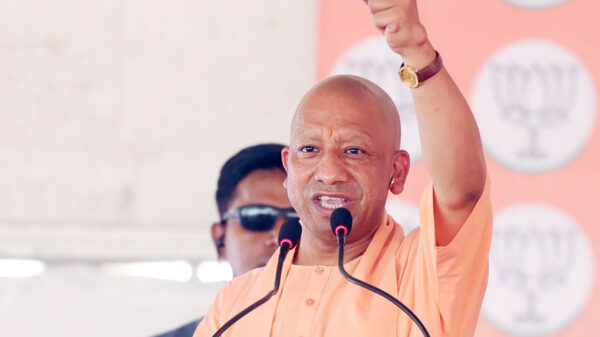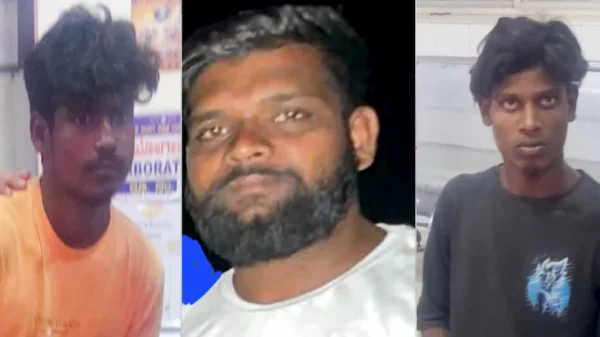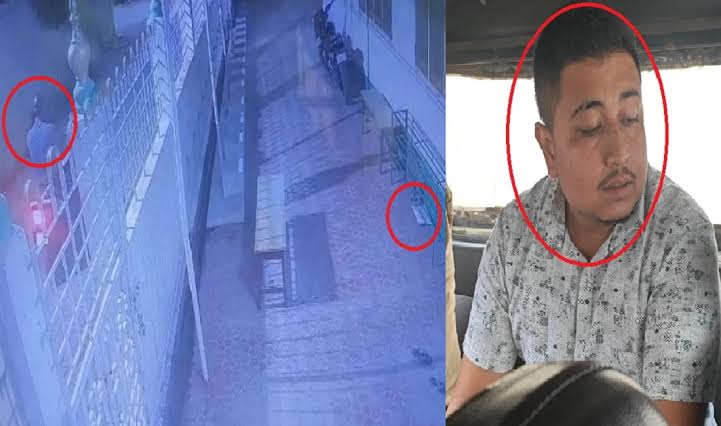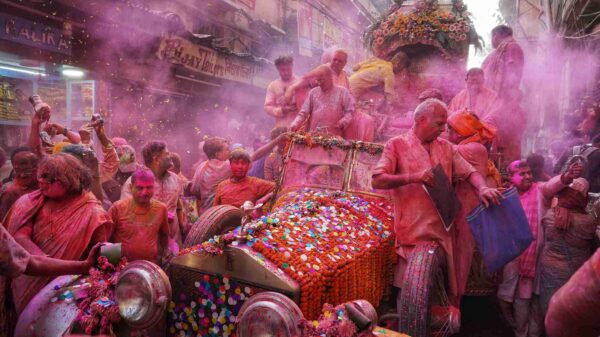Tension broke out in Guwahati after raw pork was thrown into the compound of an Eidgah mosque in the Panjabari area on the night of Sunday, July 7. The incident occurred at a mosque located on Fakhruddin Ali Ahmed Path in Puran Basti, under the jurisdiction of Dispur Police Station.
The imam discovered the pork the next morning, wrapped in a transparent polythene packet along with a handwritten note in Assamese. The note, which appeared to mock and target Bengali-origin Muslims—commonly referred to as “Miya”—read, “Miya child, you got me pregnant. Now you eat pork,” and was signed “Plabita Das.” A mobile number was also scribbled on a separate piece of paper inside the packet.
CCTV footage showed a man wearing a blue shirt and helmet arriving on a two-wheeler and throwing the packet into the mosque premises before fleeing. Based on this footage, the police arrested a man identified as Mridupawan Pathak from Barpeta.
Authorities are also probing the mobile number mentioned in the packet.The use of the term “Miya,” which has often been weaponised in Assam to marginalise Bengali-origin Muslims, has inflamed communal tensions.
Community leaders have strongly condemned the act, demanding strict punishment for the perpetrator and enhanced security around religious sites.
Chief Minister Himanta Biswa Sarma condemned the incident, calling it “unacceptable.” He drew parallels with earlier incidents where suspected beef was placed near Hindu temples to provoke tensions.
“When a few tried to weaponise beef by placing it near temples to provoke Hindus, we must also ask—what happens if pork is placed in mosques to provoke Muslims? So, neither should we place beef, nor pork, near places of worship,” he said.
Police have classified the case as highly sensitive and assured the public that they are working to prevent any communal escalation. Authorities have appealed to the public to remain calm as the investigation continues.
This incident comes just a month after similar communal unrest erupted in Assam’s Dhubri district, where suspected cow meat was found near a Hanuman temple. That case led to widespread outrage and a controversial “shoot-at-sight” order by the chief minister, which drew criticism from human rights groups.






























































